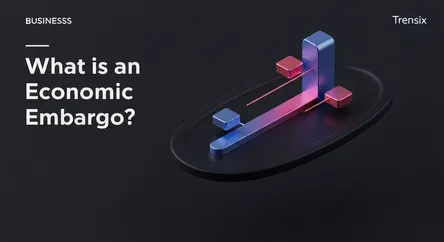Business
What is an Economic Embargo?

An embargo is a government order that restricts commerce with a specified country. Learn what they are, why they trend, and their real-world impact.
What is it?
An embargo is a government order prohibiting trade with a specific country. It's a severe diplomatic tool used to pressure a nation over its policies, like human rights abuses or military aggression. Unlike tariffs, which merely restrict trade, an embargo aims to cut off specific goods or all commerce, thereby isolating the target's economy. Embargoes can be imposed by a single nation or multilaterally by groups like the United Nations to maximize their impact and enforce international norms.
Why is it trending?
Embargoes trend during major geopolitical conflicts. When nations face international condemnation, the implementation of trade sanctions dominates news cycles. As a primary tool of foreign policy, their potential to disrupt global supply chains and energy prices keeps the term relevant in public discourse. This is especially true when international tensions rise and economic warfare becomes a focal point of foreign relations, making headlines worldwide.
How does it affect people?
For citizens in a targeted country, an embargo can cause severe shortages of essential goods like food and medicine, leading to soaring prices. In the imposing country, consumers may face higher costs for certain goods, while industries reliant on that trade might suffer job losses. It creates significant economic hardship and can trigger humanitarian crises, affecting everyday people on both sides of the economic barrier.